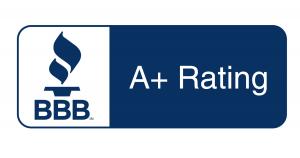Pittsburgh Homicide Defense Lawyers
The term homicide actually covers all actions that lead to the death of another person, whether though premeditation – murder – or through recklessness or negligence – manslaughter. Regardless of the term, your own life is potentially on the line. With such a dire consequence, it is important that you find a dedicated criminal defense lawyer who will aggressively defend you against your homicide charges. We believe you’ll find such representation at DRK Lawyers in Pittsburgh.
Our team of legal advocates is made up of three former prosecutors, each of whom thoroughly understands the ins and outs of the criminal justice system. We know the prosecutors and judges in the area, and we know what it takes to zealously fight murder and manslaughter charges.
The Three Degrees of Murder in Pennsylvania
Pennsylvania state law lays out three separate categories of murder:
- First-degree murder: In Pennsylvania, first-degree murder covers any murder where the actor actively intended to cause the death of another person. Premeditated murder falls under this category.
- Second-degree murder: Felony murder, or second-degree murder, occurs when an individual kills another person during the commission of a violent felony. Examples of violent felonies include rape, robbery, kidnapping and arson.
- Third-degree murder: Any other murder not covered in the two categories listed above constitutes third-degree murder. In general, third-degree murder does not include instances of specific intent to kill another human being.
The degree of murder defines the potential consequences you may face. For instance, a third-degree murder charge carries a potential prison sentence of up to 40 years. First-degree murder, on the other hand, could potential be punishable with the death penalty or a life sentence.
The Lesser Form of Homicide: Manslaughter
Manslaughter generally covers killings that do not stem from malicious intent. There are two basic forms of manslaughter:
- Voluntary manslaughter: Voluntary manslaughter occurs in situations where the actor had no malicious intent to kill, but nonetheless purposely acted in a way that resulted in another person’s death.
- Involuntary manslaughter: Involuntary manslaughter covers killings that result from grossly negligent or reckless actions. These actions need not have violated any law.
A subcategory of manslaughter, vehicular manslaughter, is covered under its own statute. It covers all homicides by vehicles in which the actor caused the death of another while violating a traffic law.
Annual Homicides in Pittsburgh
Pittsburgh homicides have generally been up since 2011, but have been decreasing slightly since a high year in 2014. From 2012 to 2014, homicides rose nearly 71% but fell by 18% from 2014 to 2017. The three areas which experience the most homicides are Homewood North, Homewood South, and Larimer, which since 2010 have experienced 31, 31, and 22 offenses respectively. All three of these areas have generally seen an increase in homicides the past few years, 9 occurring within Homewood South in 2017.
The vast majority of Pittsburgh homicides occur in the evening and at night (between 5 PM and 5 AM) on the weekends. These homicides account for 71% of all offenses in a given week. In terms of benchmark city, Pittsburgh ranks behind Denver, Minneapolis-St. Paul, and Indianapolis with the 4th lowest average homicide rate of 17.1. Black males account for 74% of total homicide victims, followed by both black females and white males, both at 10%. Most victims, 40%, are between the ages of 15-24. On the other side, black males account for 80% of total homicide offenders, followed by white males at 10%. Most offenders, 54%, are between the ages of 15-24.









